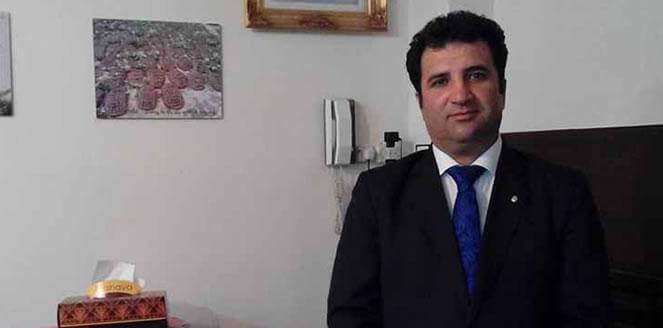Imprisoned Attorney Mohammad Najafi Facing More Jail Time for Criticizing Supreme Leader

Mohammad Najafi has been in Arak Central Prison since October 2018 serving a three-year sentence (currently being appealed) for informing media outlets that a local police station had tried to cover up the true cause of death of a young detainee.
Imprisoned defense attorney Mohammad Najafi was taken to court in the Iranian city of Shazand, Markazi Province, on December 19, 2018, to face an additional charge for criticizing Iran’s Supreme Leader Ali Khamenei in a letter.
“We are very surprised by the latest charge,” his lawyer Payam Derafshan told the Center for Human Rights in Iran (CHRI). “Mr. Najafi is being issued repetitious charges on a daily basis.”
“Previously, he had been sentenced by the Revolutionary Court to two years in prison for the charge of ‘insulting the supreme leader,’” he added. “Now another branch has charged him with ‘disturbing public opinion’ for writing a letter to the supreme leader. This is all just harassment.”
Derafshan continued: “Mr. Najafi is currently in prison and he has also received a 10-year prison sentence for another case. Why should he be dragged to court to be issued a similar charge for writing a letter?”
Najafi’s open letter dated September 8, 2018, was published by several Iranian media outlets after it was posted on his Facebook page.
“Mr. Khamenei!” he wrote. “Our generation is crushed under your burning feet! Our days are as black as your turban. Remove your cape from neighboring countries. Don’t spend our resources on your Shia ideology. We have enough troubles inside the country with graft [illegal deals involving state funds] and corruption. Don’t try to step on world leaders. We have been frozen in time for 40 years and fighting the world in sensitive times while many of our poor cannot cloth themselves or buy bread.”
The defense attorney is currently behind bars in Arak Central Prison, in Markazi Province, awaiting the verdict of the appeal he filed against the three-year prison sentence and 74 lashes he was sentenced to in October 2018 for informing media outlets that local prison authorities had tried to cover up the true cause of death in state custody of his former client, Vahid Heydari.
Derafshan told CHRI that four or more convictions would reduce Najafi’s chance of being granted early parole according to Article 134 of Iran’s Islamic Penal Code, which stipulates that “if the offenses committed are more than three, [the court] shall impose more than the maximum punishment provided for each crime provided that it does not exceed more than the maximum plus one half of each punishment.”
Najafi has already been convicted of three charges.
He is currently serving a three-year prison sentence—two years for the charge of “insulting the supreme leader” and one year for the charge of “propaganda in favor of groups opposed to the state,” all of which he is currently appealing, including a sentence of 74 lashes.
He has also been sentenced to 10 years in prison for the charge of “collaboration with enemy states through transferring news and information in interviews,” though it is not clear whether he will be ordered to serve that sentence.
Prior to his most recent charge, Najafi had also been charged with “disturbing the state” and “publishing falsehoods” for speaking to media outlets.
During a speech in March 2018, Khamenei claimed that no one in Iran is imprisoned for criticizing the government.
“Some unfair individuals take advantage of free speech and say that there is no freedom in the country, and foreigners repeat this propaganda, while in the country there is freedom of thought, freedom of speech and freedom of choice,” he said. “Today, no one under the Islamic Republic is pursued or put under pressure for being opposed to the government in their thoughts or views, and there is no intention to do this…But freedom in the Islamic Republic, as in other places in the world, has a framework.”
Najafi is one of two lawyers currently behind bars in Iran for performing their legal work. At least six other lawyers were imprisoned in 2018, including prominent attorney Nasrin Sotoudeh, for defending political prisoners or taking on politically sensitive cases and for rejecting the state requirement that political detainees must only choose from a short list of state-approved lawyers for their defense.





